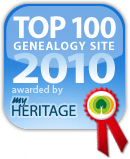The definitions for Original Source and Derivative Source provided in the literature sometimes don’t seem to fit the needs of genealogists . In particular, the literature places exact images such as photocopies and microfilm images in the category of Derivative Sources . If so, Original Sources are rare!
What do we end up with if we consider what Original Sources we have in our possession? Perhaps we have a Certificate of Naturalization or a family bible, or a sampler with the name and date of birth of a child . Beyond that, we might have photocopies of Vital Records, or electronic images of Passenger Manifests or Census Records . By definition, then, some of the most useful records genealogists have in their possession are Derivative Sources .
Recently, some genealogy authorities have classified exact images as Original Sources and, perhaps, the definitions of Original Source and Derivative Source should be modified to reflect this line of thought . Otherwise, the differentiation between Original Source and Derivative Source is almost meaningless; almost all of our sources are Derivative Sources . Most Original Sources have either been archived or destroyed.
Consider the following definitions as an attempt to take into account the records actually available and to allow genealogists to evaluate the quality of sources more precisely.
ORIGINAL SOURCE: a record that provides information not obtained or derived from another record . An Original Source can be an Original Record or and Exact Image.
This definition of Original Source takes into account that the information on an Exact Image, if it faithfully preserves the appearance and information in the Original Record, can substitute for the Original Record.
ORIGINAL RECORD: the first record in which information is captured in a fixed form, whether on paper, in stone, in electronic form, or in some other medium . An Original Record can be either an Original Source or a Derivative Source, but there can exist only one Original Record.
This definition of Original Record takes into account that paper documents are not the only Original Records . Inclusion of media other than paper is increasing important in a digital world . This definition also considers that an Original Record can be either an Original Source or a Derivative Source . An Original Record is an Original Source only if the information in that record was not obtained or derived from some other record.
EXACT IMAGE: a reproduction of an Original Record in a photograph, photocopy, microform, digital form, or other media that preserves both the appearance of and information in the Original Record.
The quality of the image is an important characteristic to consider when deciding if an image qualifies as an Exact Image . Severe distortion of the image or alteration of the image (such as when a vital records office obscures the cause of death in a death certificate) may disqualify an image from being an Exact Image.
DERIVATIVE SOURCE: a record which is generated based on information in an Original Record and is not an Exact Image of the Original Record . Derivative Sources include Transcriptions, Abstracts, and Compiled Sources.
This definition of a Derivative Source considers Duplicate Originals and Official Copies to be Derivative Sources, unless those sources are Exact Images . Some Derivative Sources are also Original Records . For example, a certified vital record that is a transcript rather than an Exact Image is an Original Record, but is also a Derivative Source.
These definitions are proposed here to try to clarify some ambiguities in the existing literature and to generate discussion . Please post a comment or send me an email (click the “E-mail Steve” link on the right-hand side of the page to find my email address).




GOOD IDEA,- I hope someone can make it happen.
Positive comments like yours help make it happen, John! Thanks for the encouragement!
Steve
Thank you for your clear explanation of Original Source v.s. Deriviative Source definition. I certainly agree that a modification of definitions is needed for genealogists.
Your information is most helpful.
Thank you!